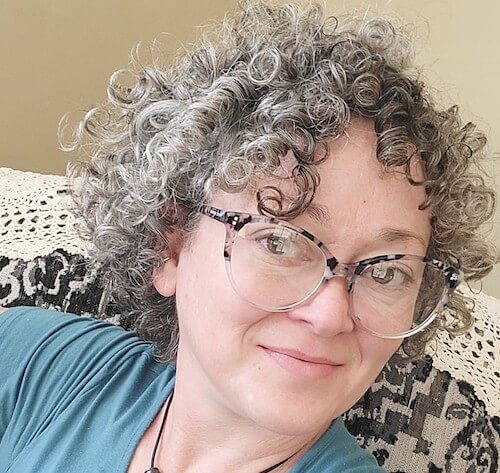Are you looking for ways to nurture your hair follicles and curb hair loss? Then you may be considering magnesium oil as a natural way to boost hair growth. But is topical magnesium really the best way to slow hair loss and get fuller hair?
VEGAMOUR spoke with an expert about magnesium for healthy hair follicles — plus, find out what products you should use to combat thinning hair ASAP.
What Is Magnesium?
Magnesium is an abundant mineral that supports strong bones, a healthy heart and balanced blood pressure. The human body needs magnesium, just like many other essential vitamins and minerals. But did you know that magnesium may also help your hair and scalp?
Magnesium Benefits for Hair
- Prevents pore-blocking calcium deposits around your hair follicles
- Reduces scalp inflammation
- Improves scalp circulation. Increasing blood flow to the scalp helps get vital nutrients to your hair follicles, which may promote hair growth.
- Detoxifies the scalp
Shop: GRO More Kit for Thinning Hair
Transdermal Magnesium and Hair Loss
Although you can eat magnesium-rich foods or take a supplement, topical magnesium products are gaining popularity for hair loss sufferers.
Magnesium oil is a transdermal (to be applied on the skin) form of magnesium. However, the science is a little thin on transdermal applications of magnesium, asserting that topical magnesium might be less effective than taking a magnesium supplement or getting enough magnesium naturally in your diet.
#include-related-slider#
The Experts on Magnesium for Hair and Scalp Health
VEGAMOUR spoke with Dr. Hari Kiran Cheruki, a dermatologist and medical head of ClinicSpots, about what magnesium can do for your hair and scalp. Dr. Cheruki shared that "Magnesium is essential for healthy hair growth as it helps reduce inflammation, promote circulation and provide essential nutrients needed for healthy cell regeneration."
Dr. Cheruki explained that "Magnesium plays an important role in energy production, helping to break down carbohydrates into energy for the body. This energy is essential for healthy hair growth as it helps to promote cell regeneration and circulation in the scalp, leading to thicker, healthier-looking hair. Magnesium also helps regulate cortisol levels which can reduce stress-induced hair loss. All hair types can benefit from magnesium use, as it helps to promote healthy scalp circulation and cell regeneration."
Related: Why a Healthy Scalp Is Important for Healthy Hair
Magnesium and Your Hair Follicles
There's more to understand about the activities of magnesium before you make it a part of your hair care routine. For example, some hair loss conditions, such as alopecia areata, are affected by an overactive immune system. While magnesium is essential to support a healthy immune system, speak with your doctor if you have autoimmune disorders or a condition like alopecia areata and if a magnesium oil regimen is advisable for you. Your doctor can advise you on healthy magnesium levels for your particular health profile.
Inflammation
Many scalp conditions involve inflammation around the hair follicles. Topical magnesium oil products may help to reduce inflammation and improve those conditions. If you are suffering from female pattern baldness and thinning, also called androgenetic alopecia, then it's important to curb scalp inflammation, a factor that may contribute to this hair loss condition.
Scalp Calcification
Magnesium helps to disrupt calcium deposits around hair follicles, which can be caused by hard water deposits around the hair follicles. Calcium salt deposits can clog pores and disrupt a healthy and predictable hair cycle, threatening your existing hair with premature shedding.
Magnesium and Protein Production
Another interesting thing about magnesium is its effect on protein synthesis. Magnesium is thought to promote protein production, another healthy benefit for your hair follicles. Protein production support may play a role in preventing premature graying, another plus.
Read: A Clinical Nutritionist’s 5 Must-Have Pantry Items for Healthy Hair
Keeping Magnesium Levels in the Normal Range
The key is to maintain healthy magnesium levels in your body to prevent low magnesium or too much magnesium in your system, both of which could harm your health. Ask your doctor if you might be magnesium deficient and for a recommendation on the best magnesium supplements for you. Here are some ways to keep magnesium levels in the normal range.
- Eating magnesium-rich foods like nuts, tofu, beans, green leafy vegetables and avocados. Dark leafy greens and tofu are especially abundant in magnesium.
- For magnesium deficiency, boost magnesium intake with magnesium supplements, which may say "magnesium chloride supplement" on the bottle.
- Using magnesium oil topically, such as in hair care products, magnesium oil products, scalp serums, skin lotions and some bath products.
As stated earlier, magnesium might be more effective via the digestive system through what you eat or by taking magnesium chloride supplements. Ask your doctor how to take magnesium most effectively.
Many people feel applying magnesium directly to the scalp makes the most sense. If your scalp is particularly sensitive, note that magnesium may cause a tingly feeling which could be unpleasant for you.
Best Hair Care Ideas to Encourage Thicker Looking Hair
If you've been dabbing on apple cider vinegar after your shower or using tea tree oil drops to stimulate your scalp and clarify it, then you're likely the type of person who would consider adding magnesium to your beauty and health routine. Is it helpful? Possibly.
A more effective routine, however, includes more than magnesium.
Nourish Your Hair Inside and Out
GRO Revitalizing Shampoo and Conditioner sets the stage for healthy hair, no matter your hair type and contains the same powerful phyto-actives as our best-selling hair serum. Minimize shedding and nourish your hair with microencapsulated vegan b-SILK™ protein that leaves your hair looking as smooth as glass.
You can also take GRO Biotin Gummies to encourage thicker, fuller-looking hair. While the gummies do not contain magnesium, they do contain lots of other hair and scalp goodies like vitamins B-5, 6 and 12, biotin and folic acid.
Get In a Daily Scalp Massage
Light scalp massage stimulates blood vessels on the scalp. Increasing blood flow to the scalp's blood vessels through massage has been shown in studies to encourage visibly thicker, fuller hair.
See Also: The 5 Benefits of Scalp Massage, Including Hair Growth
Is Magnesium the Answer to Hair Loss?
While you may choose magnesium to address hair loss, your scalp and hair will respond best to a 360-degree approach. Get plenty of sleep, eat nutritious meals, stay hydrated, reduce stress, massage the scalp and exercise regularly. Also, remember that topical and nutritional products can help create the optimal ecosystem to encourage healthier, thicker-looking hair. Here's to your hair's health!
#include-related-slider#
More From VEGAMOUR
- This Is the Best Conditioner to Encourage Thicker Looking Hair
- Dry Thinning Hair? Here's What You Can Do
- Your Guide to Dealing With Damaged Hair
- Hair Shedding vs. Hair Loss: How to Tell The Difference
Photo credit: Bade Saba/Pexels



















